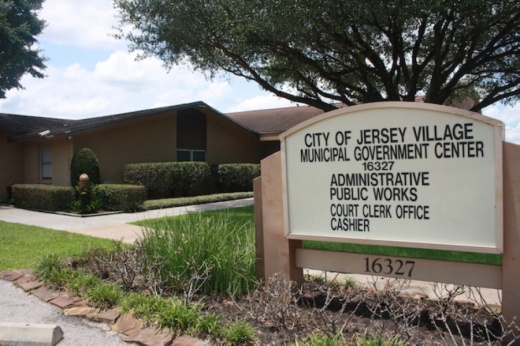The charter view commissioner, which kicked off this summer, made the recommendations to the Jersey Village City Council at an Oct. 19 meeting. The recommendations were based on a mix of feedback from city staff, council and public comments, said Sheri Sheppard, the chair of the Charter Review Commission.
The first of two significant updates would allow a new council member to be appointed to a council position without it counting as an official term in office. Council members in Jersey Village are limited to no more than three consecutive terms of two years. Currently, when anyone is appointed to a council position between elections, the time they serve leading up to the next election counts as a full term.
Several council members have been appointed to fill vacancies in the recent past, including current Place 1 Council Member Drew Wasson, who was appointed in 2019 when Andrew Mitcham stepped down from council to run for mayor. Mitcham, who currently serves as mayor, was appointed to the council in 2015 to fill a vacancy, as was Place 2 Council Member Greg Holden in 2014. The proposed change received unanimous support from the council.
The second proposed change would require council members or mayors to resign from office if they qualify and intend to run for another municipal office when the terms of each office run concurrently with one another.
The change is intended to address an inequality that exists under the current system, Sheppard said. Council members serving on Position 2 and Position 3—the two positions that are elected alongside the mayor in odd-numbered years—cannot run for mayor without having to also give up their council seat, regardless of if they win or lose.
Council members serving on the other three seats, which are elected in even-numbered years, do not face the same barrier, she said: They can file to run for mayor while also keeping the council seat if they lose the election.
"This puts both cycles on equal footing," Sheppard said.
The change would also require any candidate who plans to run for another office to submit their intent in writing to the city secretary at least 60 days before the filing deadline, a move intended to allow other candidates enough time to file to run for the seat being vacated.
Holden and Council Member Gary Wubbenhorst both opposed this rule change, arguing it would serve as a deterrent for council members who are considering running for mayor.
"In my opinion, it creates a situation where you could have a qualified and competent person on City Council who is qualified to move into the mayor’s position but chooses not to because of ... having to resign," Holden said. "It’s kind of an all-or-nothing type of deal. Staying on council, if they did not win, would still be a benefit."
The remaining council members did not oppose the proposal, but each of them supported a change to the wording so any council member running for a new position would not have to resign until May, when the new term begins.
"We already have a shortage of people willing to run," Council Member James Singleton said. "If a candidate, midterm, decides to run for mayor and they have to resign from council in November ... [that] leaves City Council with only four council members for six months."
The city attorney said he will look into state laws to determine if such a change would be allowed and return to council at its November meeting with more information.
Changes to the city charter require citizen approval, and none of the proposed changes will be official until after an election in May. The ballot language for each change will be drafted by city staff and come back to the council for approval at a later date.





